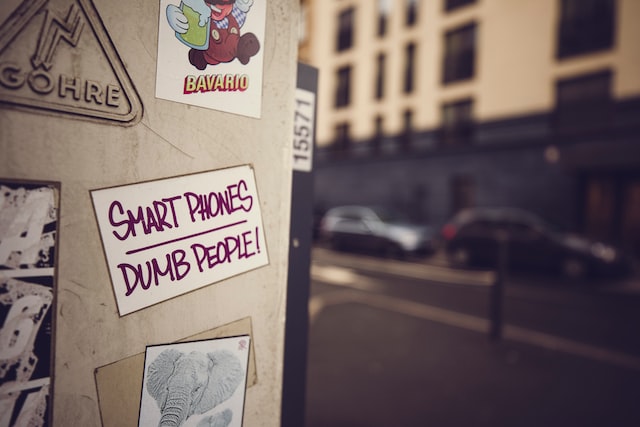Top Songs About Criticism
Music and criticism are almost inseparable. Every singer, rapper, DJ, etc have had their fair share of criticism, on their music, lifestyle, name it. Most of these artists turn to their art to explain themselves, defend themselves or just run these critics down into the mud.
This list contains songs about criticism, and I trust that you will find them interesting.
1. “Snow On Tha Bluff” By J. Cole
Cole is widely recognized as one of the most politically conscious rappers working today. A lot of people, as suggested in the song, were looking for him to speak out as riots broke out across the United States following the apparent racist-police death of George Floyd. The standard retort is “Snow on the Bluff.”
It should be noted right off the bat that he generally adopts a low-key attitude. He virtually admits right from the get that despite his reputation as a conscientious artist, he needs a wake-up call before leaping into action on the aforementioned matter.
Fans have decided that Noname, another rapper, is most responsible for this spurring of action since it was Noname who indirectly criticized Cole and other rappers whose “whole discographies are about Black struggle” for their absence during the protests.
Although he never mentions her by name, Jermaine seems to be acknowledging Noname throughout the song’s first half as well. Rather, he responds to a “young lady” who he believes is “talking about him” because of her criticism of many celebrities. As he came to terms with the “validity” of her critiques, he decided to listen to them.
Moreover, while it’s true that Cole adopts a modest demeanor at first, after all is said and done, he comes out as rather passive-aggressive. Because he criticizes those, like Noname and others, who have essentially accused him of being a hypocrite. And what he says is that they shouldn’t worry so much about his deeds and more about their own.
2. “The Blacker the Berry” by Kendrick Lamar
This is one of the best songs about criticism, Kendrick Lamar raps eloquently about the hardships faced by black folks in this country. At the outset of the song, he explains how entrenched racism still prevents most African Americans from achieving more success than they have so far.
The song criticizes how black artists are celebrated in American culture while the underlying reality of racism is downplayed. He suggests that police brutality, gun violence, and mass incarceration are all signs of modern slavery and makes repeated references to each of these.
Throughout the song, Lamar boasts about being African-American while also highlighting the reality that he and other black males continue to achieve success despite racist white society’s expectations.
The song takes a surprising turn, however, as Lamar labels himself a hypocrite and implies that the rest of the black community is just as guilty as he is of injuring their people through gun violence in addition to current racism, jail, and murder.
3. “Renegade” by JAY-Z (ft. Eminem)
Renegade is one of the greatest rap collaborations of all time. It was released when both Jay-Z and Eminem were at the height of their popularity.
For the later performer, this was especially true. For instance, this song has been called “the best Eminem song ever” by at least one major website. Considering Jay-Z is the actual lead singer, that is a bold claim. Meanwhile, the song’s title suggests that the two featured musicians are counter-cultural “renegades.”
And let’s be honest, it’s not like Jay-Z doesn’t have good lyrics. While the rapper describes how his slum upbringing shaped him into the wordsmith he is today, the song also proves to be one of his most memorable lyrical performances.
That’s why he takes it personally when listeners and readers criticize his work without first considering the meaning of his lyrics. In the context of this song, however, he is happy to accept the label of “renegade,” which reflects the musician’s determination to maintain an authentic performance.
This is also the message that Eminem is pushing, but he is not being as autobiographical as his collaborator. He is aware that some people in authority have been offended by the music he releases.
However, parents are worried not so much about the content of his lyrics as it is about the fact that their children like listening to and singing along with Slim Shady. Again, he says that his commitment to writing sincere songs is responsible for this seeming contradiction.
He characterizes parents as hypocrites because they condemn behaviors that they participated in as children. Later in the second stanza, he makes it very clear that he intends to establish his credentials as a “modern-day” prophet.
The implication is that the fact that someone with his background can wield such power says more about the current state of society than anything else. Like Jay-Z, he ends by saying he’s “from the gutter,” or the ghetto. And he sees making money as the priority in his music career.
4. “White Riot” By The Clash
In the West, there is no shortage of songs that slam the populace for being too apathetic. In essence, “White Riot” is a similar piece, albeit with a twist. In particular, the lyrics’ racial overtones are such that “White people” are the intended recipients of the insults.
These songs were written in response to the events of the 1976 Notting Hill riot. According to the legend, many Black people and quite a few White youngsters got into a brawl with the police as they tried to apprehend an individual at the 1976 event (who is thought to have been a pickpocket).
White people who attended the event and got “caught up in the festivities” included The Clash’s Joe Strummer and Paul Simonon. As the song’s lyrics make clear, the whole experience served as a major creative catalyst for them.
Or, as it has been said, they respect the “Black man’s” resoluteness in the face of adversity. That is to say, when portrayed, Black people have no problem spazzing out when they feel they have been insulted by the powers that be.
However, Whites may be the most academically inclined of the two races. However, school is “teaching kids how to be thick,” or in other words, it’s putting them in a position where they won’t feel as motivated to defend themselves if they encounter similar forces in the future.
The second verse implies that this is not a criticism of the bravery of one race over another but rather an acknowledgment that Blacks and Whites share a similar enemy. To rephrase, the singer is addressing racism less directly than classism. This is one of the songs about criticism that reflects on a lot of things.
5. “Weapons” by Ava Max
It doesn’t take a celebrity to realize that in today’s age of instantaneous communication and sharing, celebrities face unprecedented levels of scrutiny and criticism. Even though “Weapons” by Ava Max does not directly address this issue, one cannot deny that it served as an inspiration for the song.
The idea that words can be used “as weapons” is what Ava is addressing. As a result, she’s built up a thick skin to protect herself from further bullying.
But it’s not like she’s trying to portray herself as untouchable. It’s more along the lines of the singer being a romantic activist through their art. Therefore, the haters have only two options. Either they’re going to use words as weapons in an attempt to cause a fight, or they’re going to take the more peaceful route and just dance to the music.
If they opt for the former, Ava is also letting them know that, even though their attacks hurt, they aren’t enough to derail her. Lyrically, this is one of the best songs about criticism you should listen to







